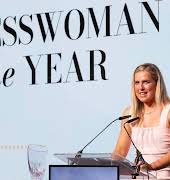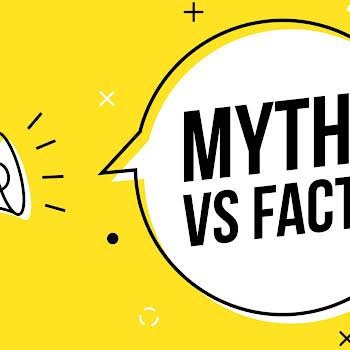By Jenny Darmody
10th Mar 2020
10th Mar 2020
communication skills
Good communication skills are so much more than a CV cliché, writes Jenny Darmody. Here’s how to hone them ahead of your next job interview.
How often have you written ‘I have good communication skills’ on your CV? If you saw it written on someone else’s CV, would you believe them just because they wrote it down?
The ability to communicate well is one of the most vital skills you will need, no matter what job you go for. It’s easy to prove many of your other technical capabilities, often known as ‘hard skills’, but it’s a little more difficult to prove your soft skills such as creativity or problem-solving.
However, if you’re able to effectively prove your communication skills in a job interview, it will go a long way towards making you stand out as the perfect candidate. Not only that, but the interview itself can be the perfect opportunity to demonstrate some of those great skills in communication. So, what do you need to do to show that you’re a master communicator? Let’s start with outside the interview room.
Consider non-verbal communication
Once you’ve decided to improve your communication skills, spend a week or two paying a little more attention to your body language when you’re in conversation with someone. How do you stand? What do you do with your hands, both when you’re talking and listening? Do you cross your arms? Do you use your hands a lot when you’re making a point?
Knowing how your body behaves when you’re communicating can really help you adopt a more open stance and give you an idea of how you might come across to others.
Don’t react instantly
This is particularly important in meetings at work and will become a vital skill when you head for your job interview. It is human nature to answer someone as soon as they’re finished talking.
Are you really listening or are you thinking about your reply while the other person is still talking?
You might have even started thinking about what you are going to say while the other person is still talking. In fact, research shows that 95% of our everyday behaviour is automatic, leaving only 5% for conscious behaviour.
That means that you mostly react automatically to situations rather than giving them any real thought.
Instead, don’t be afraid of a few seconds of silence while you consider your point. If you’ve been asked a question, or for your opinion on something, take a few seconds to consider the question before you speak. It might not seem like much, but those precious few seconds are enough for your brain to think about how you’re going to communicate your point in the best way possible. This can be particularly important when you disagree with another person, as it will help you to remain calm and measured when explaining your thoughts.
Practise active listening
The most important step towards being a better communicator is arguably being able to listen properly to what the other person is saying.
“Active listening means you’re using all of your senses to really listen to what the other person is saying”
Active listening may sound like somewhat of a nebulous term, but it is significantly different from passively listening, which most of us are guilty of from time to time. Again, this relates back to taking the time to respond rather than jumping straight in with your own ideas.
Active listening means you’re using all of your senses to really listen to what the other person is saying. You should then be able to summarise back what was said to ensure both parties are on the same page.
Prove your skills
Once you’ve spent some time reviewing your own communication skills and improving them in the workplace, you can then prepare to shine in a job interview.
Practise makes perfect
Always practise answering a few questions with a friend or family member ahead of your interview. Ask them to watch out for nervous body language tics, rambling answers that bore them or situations where you don’t answer the question properly.
These are the mistakes you may not hear yourself, so it’s important that you have someone to flag them. If your answers are boring to your friend, there’s a good chance they’ll be boring to the interviewer. Make sure you’re answering the question directly, stick to the point and don’t make your answers too long, which brings us onto the next point.
Follow the STAR method
STAR stands for: Situation, Task, Action and Result. This is how all of your answers should be structured and you should be prepared to explain any examples of your skills this way.
“Sticking rigidly to this method of answering your interview questions will keep you on point and stop you from rambling”
Briefly describe a situation you were in, explain the task you had to complete, talk about the action you took and the results that came from that action.
Sticking rigidly to this method of answering your interview questions will keep you on point and stop you from rambling.
On that note, don’t fear silence in an interview. The onus is on them to ask you questions and follow up if they need to. Once you have answered the question sufficiently, don’t feel the need to keep talking. Let the interviewer fill the silence and take your time with each question to steady your nerves and consider your answer.
Give examples
Being able to communicate well in an interview is half the battle when it comes to proving your skills in this area. However, if you want to really stand head and shoulders above the other candidates, think about previous experience in which you’ve had to be a good communicator.
Did you have to present a strategy to a board meeting?
Communicate a project plan to your team? Host an event or give a public presentation?
Have you ever given interviews on the radio?
These are all experiences that prove you are a good communicator so being able to talk about these will further prove your communication skills.
Jenny Darmody is the growth editor at RECRUITERS.ie, Ireland’s most trusted recruitment partner. Jenny is also a former journalist, specialising in all things career-related and work-life balance.
Photo: Unsplash
Read: Pitfalls to avoid when promoting staff from within your company
Read: Do you work through lunch? Does your CEO send out-of-hours messages?






















